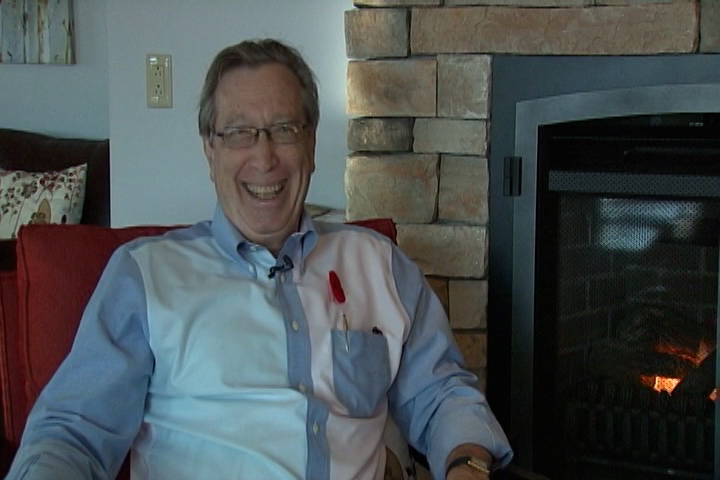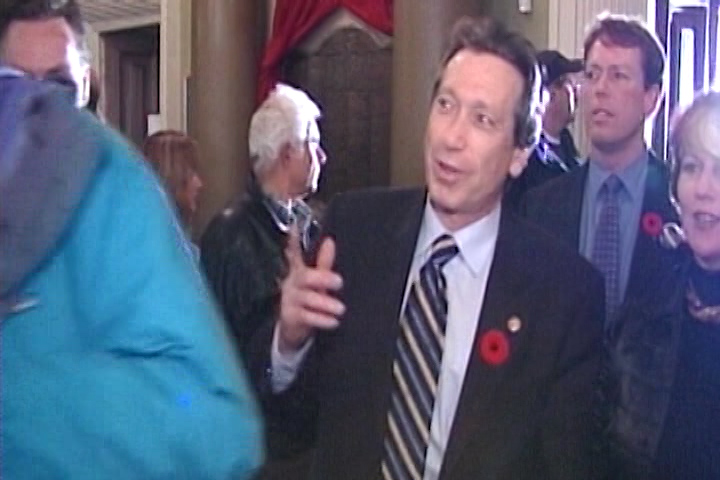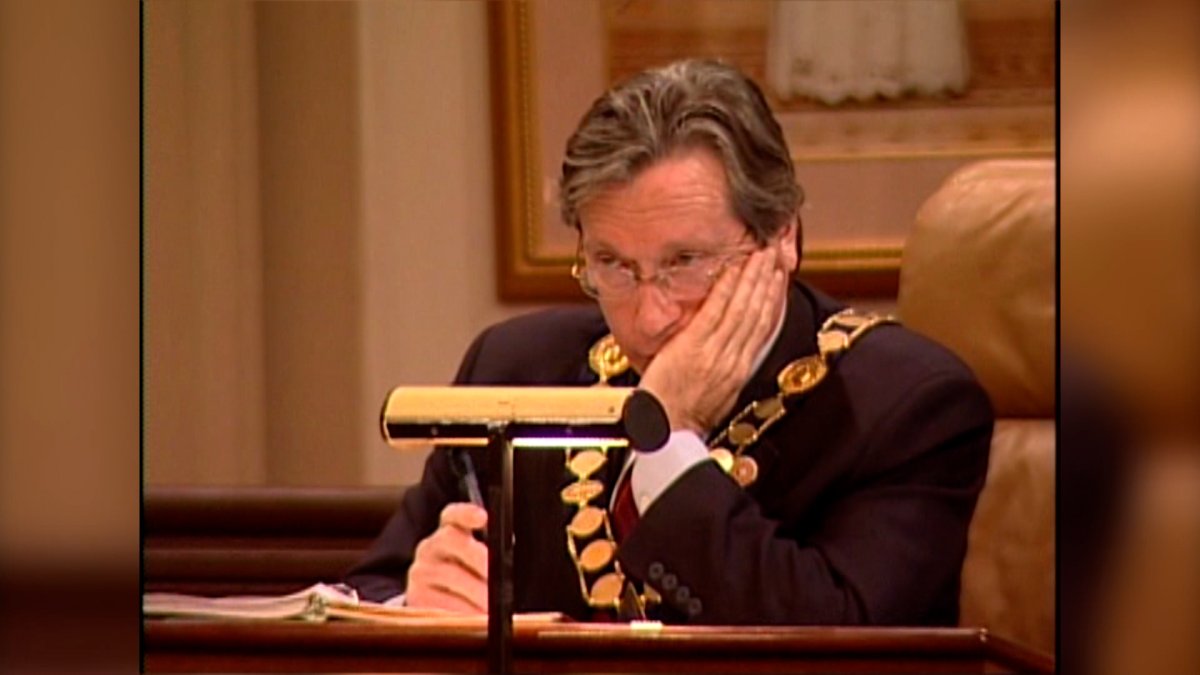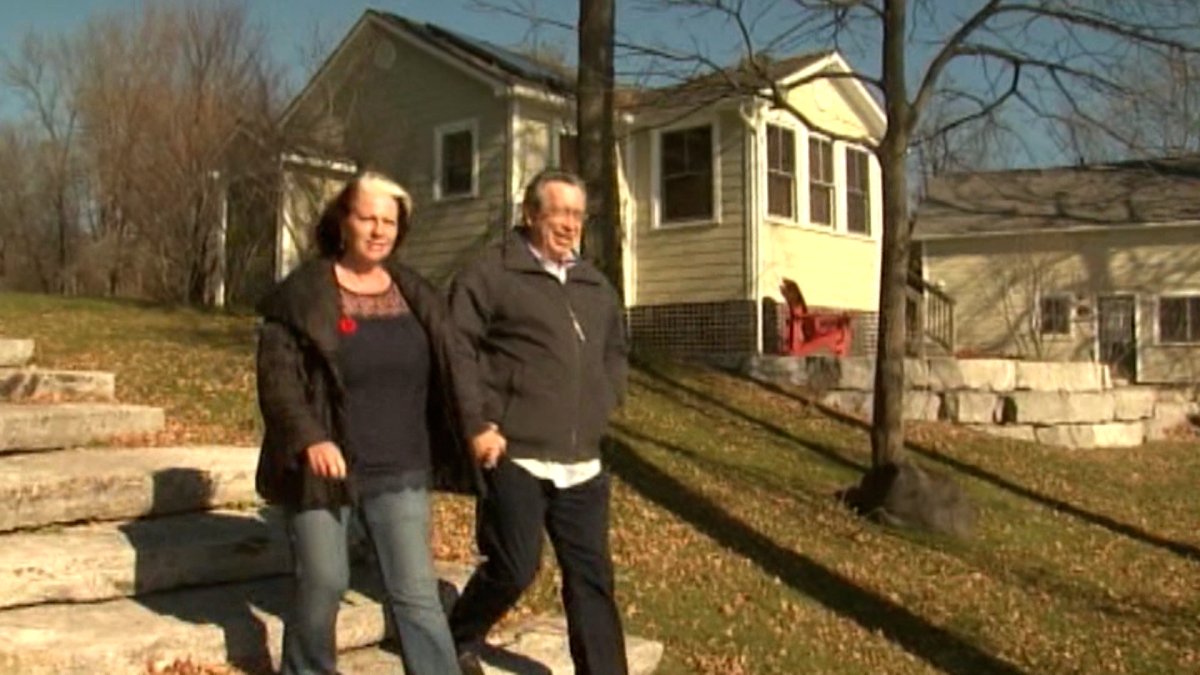Former Kingston, Ont., mayor Harvey Rosen has died at 73 after a battle with cancer.

He passed away Thursday, Sept. 8, just a week after his official portrait was unveiled at City Hall to mark his years as mayor, and on the same day as the death of Queen Elizabeth II.
“We are saddened to inform the community of the death of Harvey Rosen, former President of the Beth Israel Congregation and Mayor of Kingston,” read a statement posted on the synagogue’s website.
His funeral service will take place at 1 p.m. on Friday, Sept. 9, at Beth Israel Congregation at 116 Centre Street in Kingston followed immediately by his burial at Beth Israel Cemetery.
Rosen served as Kingston’s 94th mayor from 2003 to 2010.
“Sharon (Rosen’s wife) called me at 5:30 p.m. today to say that Harvey had passed away,” says Geoff Coons, the former mayor’s longtime executive assistant, and family friend.
“He loved being mayor. He loved the job,” says Coons, who got to know Rosen’s public and private sides during his two terms in office.
Coons says Rosen never gloated about his political victories but fought hard to move the municipal wheels of progress.
“He was very deliberate in his agenda. He didn’t want the quicksand of inactivity to thwart that effort.”
Coons also says Rosen was always eager to move on to the next challenge.
“He was a lifelong Kingstonian. A successful businessman, and a straight line between task and result.”
In the years following amalgamation of the city, Kingston and Pittsburgh Townships, Rosen was elected on a bold vision to move the city into the 21st century with an ambitious, and costly, plan to rejuvenate much of the city’s decaying infrastructure of roads, recreational and cultural assets.
But those knock-down, drag-out battles, many of which he won, paled in comparison to his recent health battles.
Coons says throat cancer robbed Rosen of his ability to speak, but he was able to communicate non-verbally using a tablet.
His death came just one week after Rosen’s wife, current mayor Bryan Paterson and a small group of invited guests attended the oil-on-canvass portrait unveiling ceremony in the council chamber of City Hall, maintaining a tradition of painting former mayors that dates back to the 1840s.
Rosen himself was too ill to attend the ceremony. The family donated the portrait to the city’s extensive civic art collection.
The unveiling capped a remarkable career in public office for Rosen, who served as a councillor in Kingston Township and was then elected to the now-defunct Board of Control in the newly-amalgamated city, before taking over the mayor’s chair nearly two decades ago.
Ontario’s current experiment with strong mayor powers would’ve made Rosen’s job much easier during his seven years as mayor of the City of Kingston.
He was front and centre of some of the most contentious political battles in city council’s history during his time as the city’s chief magistrate.
He was elected as Kingston’s top politician by defeating incumbent mayor Isabel Turner in 2003 in a lopsided victory on a ‘go big or go home’ platform.
Rosen championed a number of multi-million dollar building projects, later dubbed the ‘Group of 7’, and mustered enough support on council to push them through.
The high-profile projects dominated much of his first term in office, including building the downtown sports and entertainment centre, the multiplex ice pads, restoring the Grand Theatre, widening John Counter Boulevard, opening the K&P Trail, revitalizing Market Square into a year-round attraction and upgrading the Ravensview sewage plant.
The John Counter Blvd. expansion was the only project not fully underway by the time Rosen left office in 2010, though he spoke with fondness of the other projects he pursued during a 2010 exit interview with Global News.
“If you’re keeping score, council went six for seven on that list. That’s an .857 batting average. That batter would go to the Hall of Fame.”
The seventh and final project was finally completed in 2020 when a bridge over the CN Rail tracks opened on John Counter Boulevard to complete a widening of the key east-west roadway.
- Alberta to overhaul municipal rules to include sweeping new powers, municipal political parties
- Grocery code: How Ottawa has tried to get Loblaw, Walmart on board
- Military judges don’t have divided loyalties, Canada’s top court rules
- Norad looking to NATO to help detect threats over the Arctic, chief says
But Rosen’s push to approve the Group of 7 projects often led to pitched battles among his council and community critics, and cost him political capital in his 2006 re-election, which he barely won over Rick Downes by 731 votes.
The large venue entertainment centre, then known by the LVEC acronym, pushed the patience of supporters and opponents to the brink, as both sides waged weekly battles over its downtown location, business plan and affordability.
Former councillor Rick Downes and Rosen routinely got into shouting matches at the council table, while former councillor Steve Garrison once famously wore his daughter’s rose-coloured glasses to highlight his claim that the LVEC would be a financial folly for taxpayers.
“He was a cool as a cucumber. Very measured and deliberate in the way he communicated. But he could give it as well as he could take it,” recalls Coons, who says one of Rosen’s greatest traits as a politician was to be a good listener.
Despite vocal opposition, construction of the downtown arena, now known as the Leon’s Centre, went ahead as Rosen enjoyed a slim majority of councillors who supported what he often-touted as his overwhelming 2003 election mandate from voters.
Despite some very public battles, Rosen enjoyed his private time away from the political spotlight where he relished the simplicity of life.
“He was very pleasant to visitors at city hall — a prime minister or premier visiting — but in his private time he was just as happy sitting in the back of the China Doll restaurant enjoying a meal of vegetables and tofu. And he loved the Blue Jays.”
After not seeking re-election as mayor in 2010 and after a failed attempt to capture the federal and provincial Liberal nominations in Kingston and The Islands, Rosen left politics for good.
Coons says the silver lining of leaving public office was that Rosen and his wife, Sharon Monson, got to spend more time together.
They ran Turtle Hill Cottages in Newboro for several years, but sold the business in 2020 as they planned to do more travelling. It was the same year the COVID-19 pandemic began, which scuttled most of their travel plans. Soon after, Rosen’s health began to decline.
Rosen is survived by his wife Sharon and grown sons, Zachary and Tyler, from an earlier marriage.








Comments